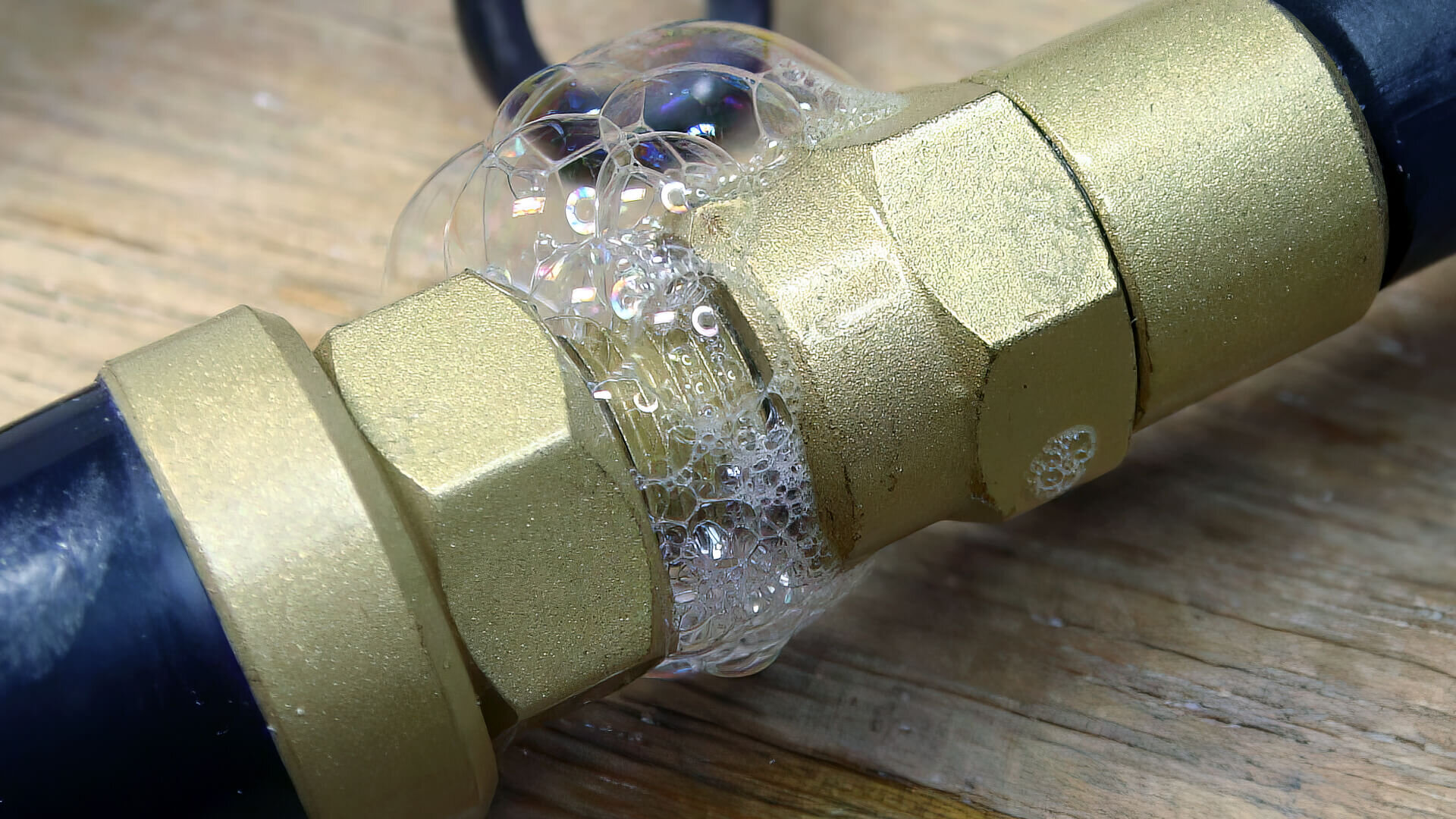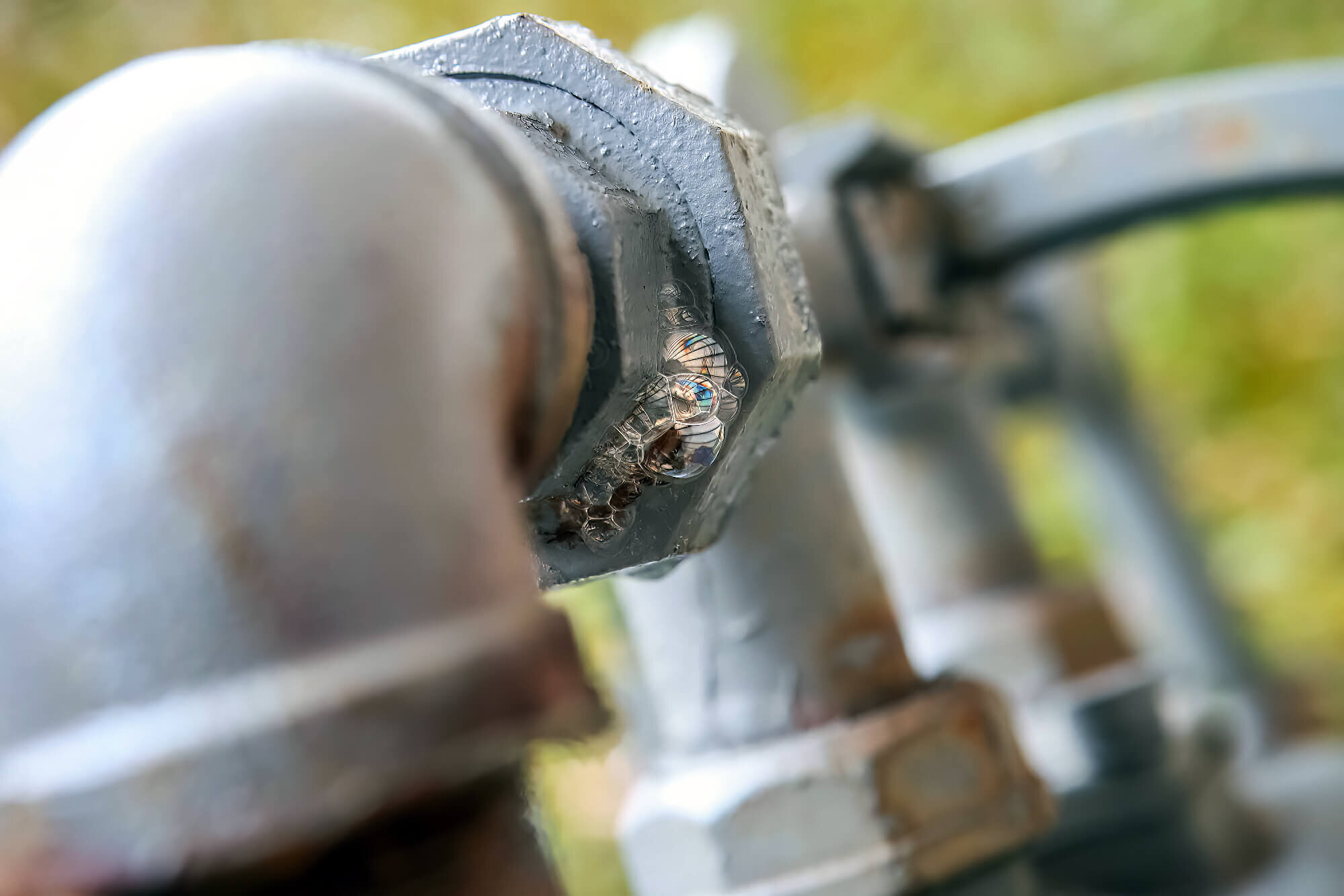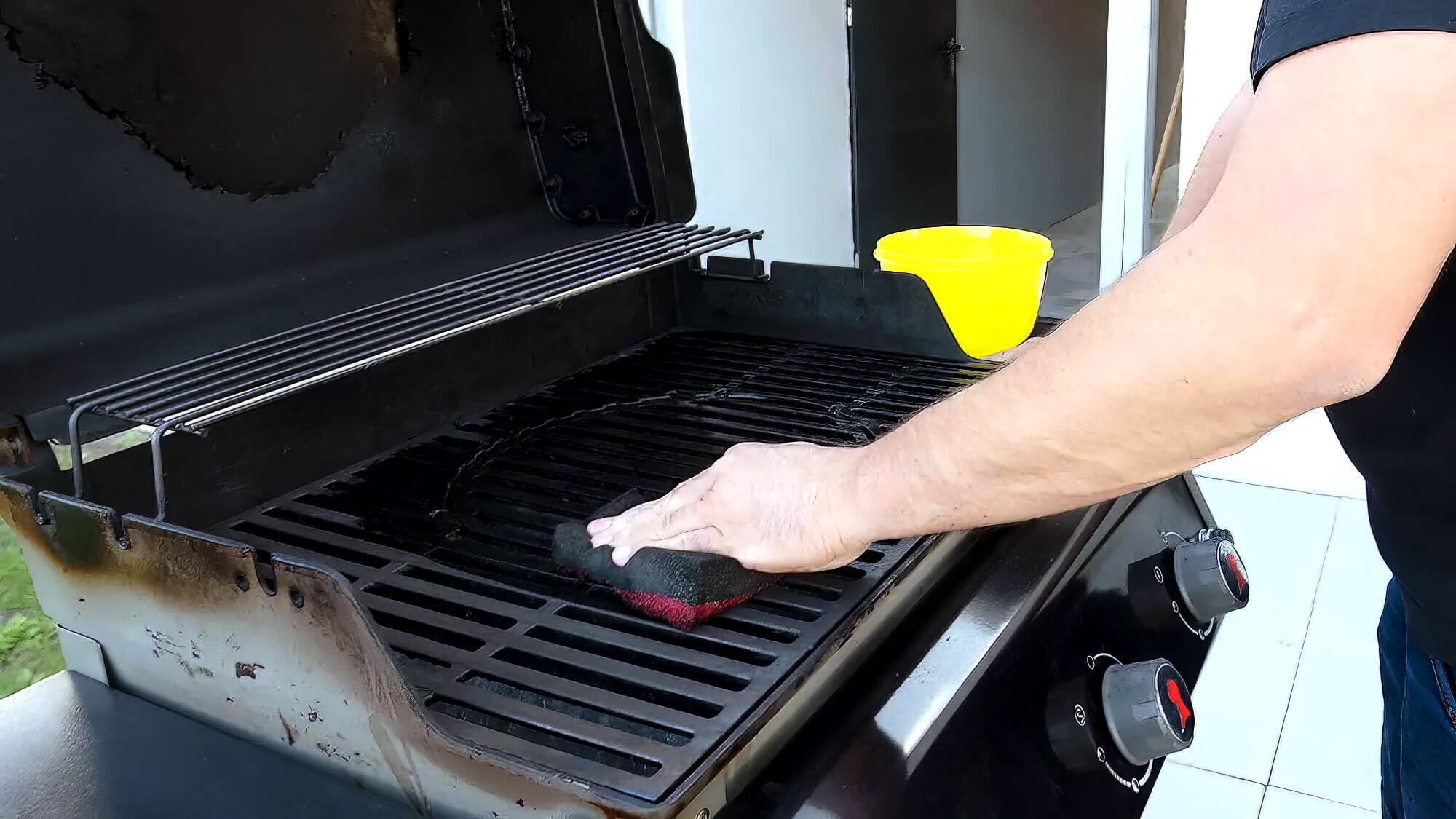It’s almost Barbecue season again in Australia. So, it’s about time you dust off the old B.B.Q. Stove to make some fresh grub in your backyard!
However, if it’s been a while since you last fired up your B.B.Q. or gas cooktop, there’s a chance a faulty component could cause a natural gas leak. It’s crucial to spot gas leaks quickly to avoid dangers like carbon monoxide poisoning. If you lack a gas leak or carbon monoxide detector, the trusty soapy water test comes in handy.

Here’s a detailed guide to detecting leaks in your gas cylinder or B.B.Q. stove components using soapy water. The test requires several steps to detect a gas leak in your gas lines, so let’s get started before you smell gas.
Using Soapy Water For Gas Leak Test
You can prepare soapy water by mixing dish soap with water. The solution can then be stored in a spray bottle or manually spread using a sponge. While laundry detergent will also come in handy, it won’t produce as much lather, meaning detecting leaks may take longer.
For this test, cover the entire hose assembly, from the cylinder valve to the stove, with soapy water and then pressurise the system. Keep an eye out for soap bubbles or the smell of rotten eggs, both clear indicators of a gas leak.
Steps To Check For Gas Leaks In Your Gas Cylinder Components
Try the soapy water test on various parts of your gas cylinder to sniff out leaks. Often, gas leaks stem from poor connections, which a professional gas fitter can sort out in a jiffy. Tightening or sealing these spots often does the trick. If not, there might be dirt or damage causing trouble.
On that note, here’s how to check for natural gas leaks in your gas cylinder components using the soapy water test.

1. Gas Regulator Connector
The main connector of the gas regulator has a rubber ring to maintain a contact seal. Examine the connector for physical damage or dirt, after which you can reconnect it and perform the soapy water test.
If you see visible damage on the main connector, consider replacing it entirely.
2. Gas Hose
The gas hose connects the regulator to the gas stove, and damage or deterioration due to long-term use can create leaks. If the hose is a few years old, you may already see cracks on its surface.
While you can perform the soapy water test for properly inspecting leaks, replacing the hose is generally advised once you see visible damage.
3. Valve Stem
If your B.B.Q. gas cylinder is over a decade old, you’re required by law to get it tested for damage. Any stem damage might hint at a valve failure, leading to leaks around the stem.
It can be challenging to check the valve stem for leaks if the damage isn’t immediately noticeable, making the soapy water test crucial.
What To Remember When Performing The Soapy Water Test

1. Do Not Use Soap With Ammonia
Brass makes most B.B.Q. valves and fittings, which can become damaged upon contact with ammonia. Prolonged exposure to ammonia can cause it to crack, exacerbating the problem.
So, you should examine the chemical composition of your dish soap and ensure that it has no ammonia.
2. Clean Up After The Test
Don’t forget to wipe off the soapy water from your B.B.Q. kit with a damp cloth and then dry it with a towel. Doing so helps prevent damage to your gas components and prolongs the life of your kit.
3. Know When To Test
If you’re not regularly using the B.B.Q., we recommend doing the soapy water test every time you reconnect the regulator to the gas cylinder, especially if it’s been years since you last used it.
Dish Soap Can Save Your Life!
Barbecue gas fires are among the most common causes of Australian house gas fires, which makes performing the soapy water test extremely important. Following the steps above may help you avert a catastrophic house fire caused by a gas leak. The best part is that you will immediately see the results without investing much time or money!
If you do spot a natural gas leak, it’s crucial to let the pros take over. D.I.Y. fixes might not cut it, and you probably don’t have the right gear, like a gas leak detector. Reach out to the best gas plumbers around. We can even help with installing your gas meter, heater, appliances, and connections. Give us a call today for Sydney gas fitters who offer prompt, 24/7 service for all your gas needs — from gas leak repairs to faulty gas appliances!
We will see you next time with more informative reads. Till then, goodbye!














